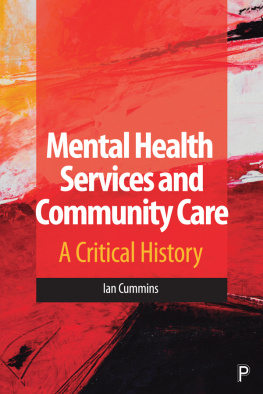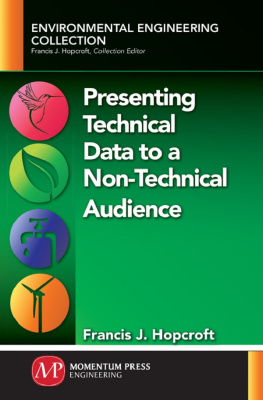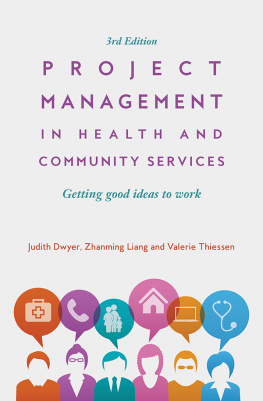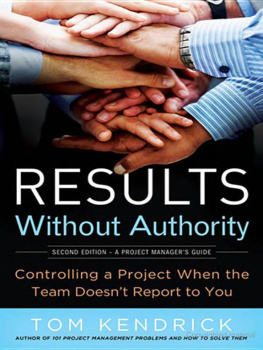NATIONAL INSTITUTE SOCIAL SERVICES LIBRARY
Volume 3
VOLUNTEERS IN PRISON AFTER-CARE
VOLUNTEERS IN PRISON AFTER-CARE
The Report of the Teamwork Associates Pilot Project
HUGH BARR
First published in 1971 by George Allen & Unwin Ltd
This edition first published in 2022
by Routledge
2 Park Square, Milton Park, Abingdon, Oxon OX14 4RN
and by Routledge
605 Third Avenue, New York, NY 10158
Routledge is an imprint of the Taylor & Francis Group, an informa business
1971 George Allen & Unwin Ltd
All rights reserved. No part of this book may be reprinted or reproduced or utilised in any form or by any electronic, mechanical, or other means, now known or hereafter invented, including photocopying and recording, or in any information storage or retrieval system, without permission in writing from the publishers.
Trademark notice: Product or corporate names may be trademarks or registered trademarks, and are used only for identification and explanation without intent to infringe.
British Library Cataloguing in Publication Data
A catalogue record for this book is available from the British Library
ISBN: 978-1-03-203381-5 (Set)
ISBN: 978-1-00-321681-0 (Set) (ebk)
ISBN: 978-1-03-204162-9 (Volume 3) (hbk)
ISBN: 978-1-03-204170-4 (Volume 3) (pbk)
ISBN: 978-1-00-319079-0 (Volume 3) (ebk)
DOI: 10.4324/9781003190790
Publishers Note
The publisher has gone to great lengths to ensure the quality of this reprint but points out that some imperfections in the original copies may be apparent.
Disclaimer
The publisher has made every effort to trace copyright holders and would welcome correspondence from those they have been unable to trace.
VOLUNTEERS IN PRISON AFTER-CARE
the report of the teamwork associates pilot project
HUGH BARR
with a foreword by
PROFESSOR SIR LEON RADZINOWICZ, ll.d.
First published in 1971
This book is copyright under the Berne Convention. All rights are reserved. Apart from any fair dealing for the purpose of private study, research, criticism or review, as permitted under the Copyright Act, 1956, no part of this publication may be reproduced, stored in a retrieval system, or transmitted, in any form or by any means, electronic, electrical, chemical, mechanical, optical, photocopying, recording or otherwise, without the prior permission of the copyright owner. Enquiries should be addressed to the publishers.
George Allen & Unwin Ltd, 1971
isbn 0 04 301032 6
Printed in Great Britain
in 11 point Barbou
by W & J Mackay & Co Ltd
Chatham
The Secretary of States view is that, since the main object of after-care is the integration or reintegration of the offender into the community the participation of ordinary members of the community is a necessary part of the process.
Home Office Circular 238/1965
FOREWORD
by Professor Sir Leon Radzinowicz, LL.D.
This is a book inspired by idealism and the spirit of adventure. But it is notable also for that shrewd assessment of what is practicable, that recognition of what obstacles must be met, that patient readiness to adapt and re-adapt as fresh difficulties or opportunities reveal themselves, which are essential if any adventure is to be realistically undertaken, any ideal transformed into substantial achievement. This is a man writing about something he himself has had a hand in creating. Not that the author and his collaborators have any illusions about how much they have achieved. Theirs was a pilot project, and the interest of their account lies as much in the dead-ends they abandoned as in the paths they have opened up.
Voluntary initiative and voluntary service have long been a most valuable element in English life. In particular, they have played a major part in the care and rehabilitation of prisoners. The tradition must not be allowed to decay, either through lack of enthusiasm from within or lack of encouragement from without. In his opening chapter Mr Barr looks at some of the trends which, though often good in themselves, have threatened this tradition over the past fifty years, and also at some of the compelling reasons which over the past decade have emphasized the need not merely to preserve but to develop it.
The bulk of the book is devoted to a description of the down-to-earth steps that were taken in one area to establish an effective working partnership between professionals and volunteers, the official Probation and After-Care Service and voluntary organizations. To undertake such a task was to bring to light ideological and emotional as well as practical difficulties, and these also are faithfully described and assessed. Instead of generalities about the need for co-operation between all concerned there is a description of the specific kinds of co-operation and of relationships that proved workable and helpful in the London area. Instead of exhortations to befriend released prisoners there is an analysis of the feelings, problems and behaviour of volunteers who have attempted to do so. The traditional approach is not abandoned, but it is subjected at every point to honest scrutiny.
The book is, in one sense, a product of the Cropwood Fellowships, established at the Institute of Criminology by an anonymous benefactor. The Fellowships were designed to give a few of those who spend most of their lives in the hurly-burly of work with offenders a breathing space to read, think and write about some aspect of their work of practical significance to their various services. Mr Barr has used one of these Fellowships to prepare for publication the findings of his pilot study. He recognizes in his Preface the help given him at this stage by two of my colleagues, Miss J. F. S. King and Mr F. H. McClintock. I have no doubt that the book will indeed prove a notable and forthright contribution to the developing partnership between volunteers and the Probation and After-Care Service in the task of restoring offenders. Both practitioners and researchers will agree that it is no more than the beginning of an exceedingly strenuous journey, but it is a beginning very much on the right lines.
- Institute of Criminology
- University of Cambridge
- September 1970
TEAMWORK ASSOCIATES
Sponsors:
M. J. H. Alison, Esq., M.P.
Gordon Bridge, Esq.
The Rt Revd The Lord Bishop of Croydon
The Rt Hon. Lord Justice Edmund Davies
Frank Dawtry, Esq., O.B.E.
S. C. F. Farmer, Esq., O.B.E.
The Hon. Sir Donald Finnemore
The Revd Canon L. Lloyd Rees
George Lowthian, Esq., C.B.E.
The Hon. S. C. Silkin, Q.C., M.P.
The Revd The Lord Soper
The Revd Austen Williams
The Most Revd The Archbishop of York
Committee:
D. H. Thornton, Esq. (Chairman)
J. H. Fitch, Esq. (co-opted 11 December 1967)
D. L. Griffiths, Esq. (resigned 5 June 1968)
The Revd J. B. Harrison (Company Secretary)
The Revd J. A. Hoyles (co-opted 18 November 1967)
R. K. Nuttall, Esq.
The Revd K. S. Pound (co-opted 11 September 1968)








